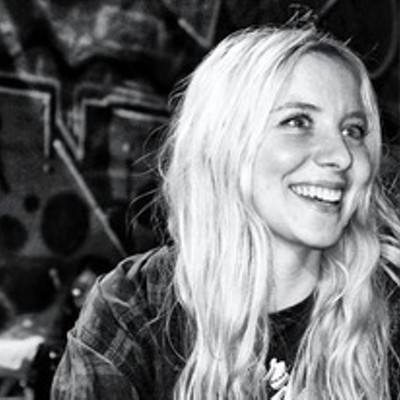In 1963, when astronaut Gordon Cooper was orbiting Earth on the last mission of NASA’s Project Mercury program, his main job was to use a magnetometer, which is basically a fancy metal detector, to look for lost nuclear warheads. But in his free time, he also looked for buried treasure.
Cooper, who had some background in searching for shipwrecks, noticed anomalies in certain parts of the ocean — inconsistencies that were too small to be warheads, clustered near shorelines where ships often sank. Many of these potential shipwrecks were close to Miami, just off the coast of the Bahamas.
From his space capsule some 150 miles above the ocean, Cooper made a map. Thirty-six years later, he gave that map to a man named Darrell Miklos, and this year, Miklos set about trying to find the treasure.
The full story of his deep-sea hunt is detailed in the next season of his Discovery Channel show, Cooper’s Treasure, set to debut Friday, June 22.
Miklos grew up in California as a surfer kid who spent his weekends on the water in Laguna Beach. But in an interview with New Times, Miklos explains that his history with treasure hunting originated in Florida in 1969, when he traveled to the Sunshine State with his father, Roger Miklos.
"My father was a strange individual, very much a nomad," Miklos says. "When we ended up in Florida, he was combing one of the beaches and found a bunch of silver coins. He told me and my three sisters we would get a quarter for every silver coin we found. It was very exciting."
Miklos' father grew interested in treasure hunting. He bought a boat with his brother, Miklos' uncle, and began looking for shipwrecks in earnest. The duo lost money at first. Treasure hunting isn't an especially lucrative career path unless you hit the jackpot. But they got some press. In 1978, Roger Miklos appeared on The Merv Griffin Show. The episode, about adventurers, also featured celebrity astronaut Gordon Cooper; in the greenroom, the space traveler first met Roger and Darrell Miklos. The three got along instantly, kick-starting a friendship that would last until Cooper's death in 2004.
Cooper helped Roger find a job at NASA looking for spent booster rockets that had fallen back to Earth. Each recovered rocket would fetch a small sum, and the pay was enough to help the treasure hunter continue following his real passion — finding ships.
Miklos watched his dad work and often helped on the boat, but he was never allowed to come along on the searches. Roger strongly believed children didn't belong on treasure hunts.
"He grew up that way. His parents were never involved in his life," Miklos says. "His father was a blue-collar kind of guy. His mom worked for Hollywood, making dresses for movies. He always stayed out of it."
Once, Miklos stowed away on his father's boat during a search. He hid in the galley, tucked out of sight inside a cupboard. But the enclosed space made him seasick. He barely made it 45 minutes before he had to leave his hiding spot and was soon discovered by his uncle.
"When my dad found out, he was furious. He looked at me and said, 'So you want to be a treasure hunter?' Then he threw me in the water," Miklos says. "He told me to swim back to the boat."
Decades later, Miklos doesn't have to sneak aboard. He's run dozens of searches of his own. In the past three years, Miklos says, his team has located 35 shipwrecks, of which only three were previously known.
"We’re telling a story about people's lives — people who lost their lives, whose stories weren’t told. If you find a personal affect that belonged to someone on those ships, you get goose bumps," Miklos says. "It’s like trying to find new life in space, only underwater."
[
{
"name": "Air - MediumRectangle - Inline Content - Mobile Display Size",
"component": "19274298",
"insertPoint": "2",
"requiredCountToDisplay": "2"
},{
"name": "Editor Picks",
"component": "17482312",
"insertPoint": "4",
"requiredCountToDisplay": "1"
},{
"name": "Inline Links",
"component": "18711090",
"insertPoint": "8th",
"startingPoint": 8,
"requiredCountToDisplay": "7",
"maxInsertions": 25
},{
"name": "Air - MediumRectangle - Combo - Inline Content",
"component": "17482310",
"insertPoint": "8th",
"startingPoint": 8,
"requiredCountToDisplay": "7",
"maxInsertions": 25
},{
"name": "Inline Links",
"component": "18711090",
"insertPoint": "8th",
"startingPoint": 12,
"requiredCountToDisplay": "11",
"maxInsertions": 25
},{
"name": "Air - Leaderboard Tower - Combo - Inline Content",
"component": "17482313",
"insertPoint": "8th",
"startingPoint": 12,
"requiredCountToDisplay": "11",
"maxInsertions": 25
}
]












